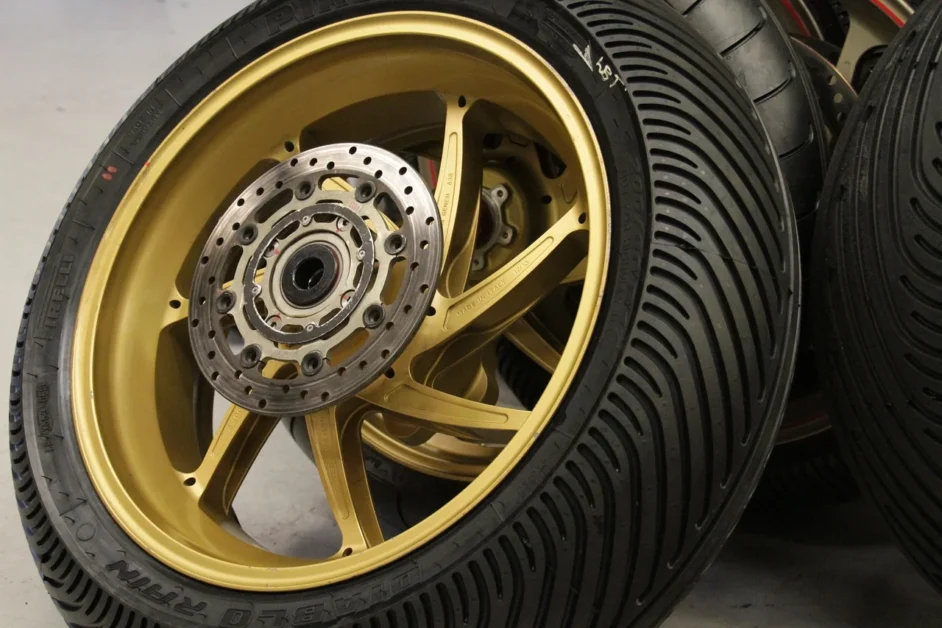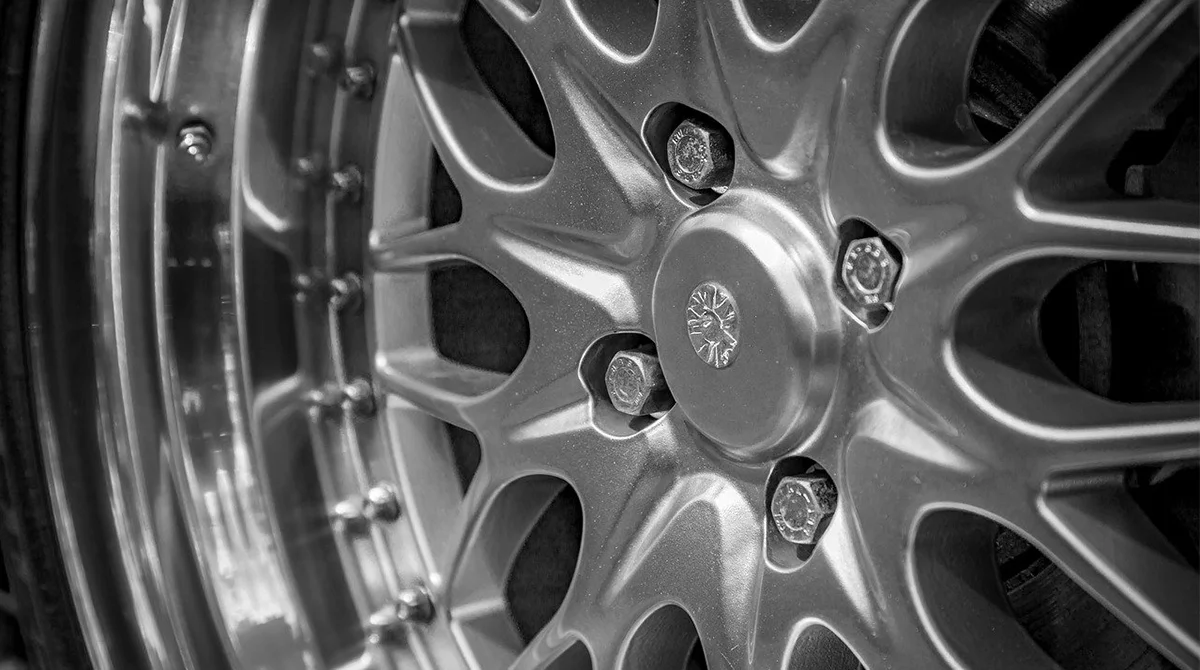Maintaining your truck’s wheels is commonly overlooked. Yet, these are the components directly contacting the road and bearing the full weight of both vehicle and cargo. Proper maintenance secures not just wheel longevity but also ensures safety and performance.
Truck owners must regularly inspect and maintain their wheels; neglecting this duty may lead to increased fuel consumption, decreased handling capabilities—and in severe cases—catastrophic failures that could cause accidents.
This article offers a comprehensive guide to recognizing the ideal time for replacing your truck’s wheels.
Common Signs Indicating It’s Time to Replace Your Truck’s Wheels
Visible Damage
Visible damage stands as a clear indicator that you need to replace your truck’s wheels. Notably, cracks in the wheels pose a serious threat; they can undermine the wheel’s structural integrity. Such cracks may result from numerous causes like collisions with potholes or curbs or simply from wear and tear over time. Small cracks, if ignored, may widen due to driving stresses, potentially resulting in wheel failure. Therefore, it is imperative that you regularly check your wheels for cracking to maintain safety on the road.
Visible damage to your wheels often manifests as bends. These are typically the result of collisions with road hazards and can lead to issues such as vibrations and uneven tire wear. Driving on bent wheels may even disrupt your truck’s alignment, precipitating additional mechanical troubles. Notice any bends or deformities in your wheels? Ensure optimal vehicle performance by having them checked and replaced, if necessary. For instance, if you’re driving a Chevrolet Colorado, investing in high-quality aftermarket Chevrolet Colorado wheels not only restores safety but also enhances your truck’s performance and style.
Harsh weather and frequent road salt use often lead to corrosion, which over time weakens wheels. This vulnerability increases their susceptibility to cracks and other damage while diminishing both the aesthetic appeal and functionality of your wheels. Regular cleaning and inspection not only reveal early signs of corrosion but also enable you to adopt preventive measures before the damage escalates beyond repair.
Performance Issues
Vibrations during driving signal potential issues with your truck’s wheels, such as imbalance or misalignment. Left unaddressed, these symptoms can escalate into suspension damage and accelerated tire wear. Address unusual vibrations promptly to guarantee a smooth and safe driving experience; it’s essential for maintaining vehicle integrity.
Poor handling signals your wheels might require replacement. If your truck responds sluggishly during steering or feels unstable, compromised wheels are often to blame. Such poor control complicates driving and heightens accident risks, particularly in adverse weather conditions. Maintain control and ensure safety on the road by keeping your wheels in prime condition.
Performance issues in trucks often develop subtly over time; however, consistent maintenance and inspections enable early detection of such problems, prompting timely corrective measures before matters worsen. Vigilant monitoring of your truck’s handling and performance yields crucial clues about wheel condition, signaling when replacement becomes necessary.
Wear and Tear
Inevitable wear and tear on your truck’s wheels manifests in telltale signs, one of which is unusual tread wear patterns. Pay close attention if you detect uneven or accelerated erosion in specific areas; this could signify wheel issues necessitating replacement. Inspect your truck’s tire treads regularly; this proactive measure allows you to detect uneven wear early, thereby ensuring optimal traction and handling.
Consider the age and mileage of your wheels. These factors significantly impact their longevity. Wheels may weaken over time even if they seem intact. High mileage exacerbates wear, upping the odds for problems like cracks, bends, and corrosion. You can make informed decisions about when to replace your wheels, thereby ensuring continued safety and performance, by actively monitoring their age and mileage.
Staying vigilant and proactively inspecting your truck’s wheels is essential for managing wear and tear. Promptly addressing signs of damage or performance issues can extend the wheel lifespan, and by extension, maintain your vehicle’s overall health. Remember—investing in new wheels when necessary represents a small price for ensuring your truck’s safety and reliability.
Consequences of Ignoring Wheel Replacement
Increased Accident Risk
Neglecting the replacement of your truck’s wheels when necessary significantly raises accident risk. Damaged or worn-out wheels may cause control loss, particularly at high speeds or during sharp turns. Cracks and bends compromise wheel integrity, heightening susceptibility to stress-induced failure. Maintaining your wheels’ condition ensures not only vehicle performance but also the safety of all road users. Neglecting this can lead to sudden blowouts or wheel detachment—catastrophic events with the potential for severe accidents.
Brake Performance Issues
Neglected wheel replacement poses another critical safety concern; it compromises your truck’s braking system. Wheels in disrepair may fail to sit correctly, leading to uneven brake pad wear and diminished stopping power. Your truck’s increased stopping distance is a consequence of improperly maintained wheels. In emergencies, quick and safe braking is paramount. Therefore, regularly inspecting and promptly replacing your wheels ensures optimal brake functionality.
Suspension Damage
Ignoring the need to replace damaged or worn-out wheels not only jeopardizes wheel integrity but also threatens other vital truck components, including the suspension system. This system is engineered to absorb shocks and ensure tire-road contact. Damaged wheels disrupt weight distribution, imposing extra strain on suspension elements. Premature wear and part failures—such as shocks, struts, and control arms—often result from prolonged use. Accordingly, since repair or replacement costs of these components significantly exceed the expense of new wheels, opting for timely wheel replacement emerges as the more economical choice over time.
Increased Tire Wear
Neglected wheels often result in increased, uneven tire wear. Bent, cracked, or corroded wheels fail to offer a stable and even surface for tires; consequently, this leads to accelerated and irregular tread erosion, shortening tire life and necessitating more frequent replacements. An average all-season tire lasts between three and five years. But ensuring good wheel condition maximizes this lifespan and maintains optimal vehicle performance. Meanwhile, uneven tire wear compromises handling and safety, making it less efficient to drive.

Final Thoughts
Ensuring the integrity and performance of your truck’s wheels is critical to guaranteeing a safe, smooth drive. This article has covered signs that signal replacement needs and explored the repercussions of maintenance neglect. Understanding and acting upon these key points enables you to make informed decisions that not only boost your vehicle’s performance but also ensure its safety.
Related Topics:



